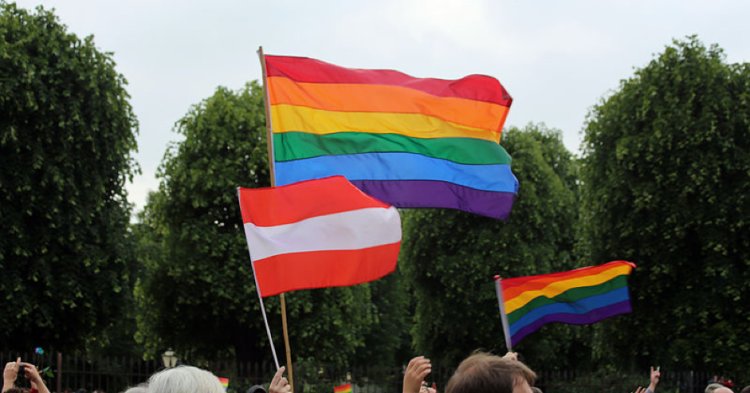For this year’s UK LGBT+ history month, The New Federalist is taking the opportunity to look back on historical moments and iconic figures in the European fight for LGBTQ+ rights, as well as exploring contemporary LGBTQ+ politics and filmic representation.
Austria – snowy mountains, crystal clear lakes, and a sometimes rather conservative population. Although for the most part, Austria’s LGBTIQ+ community does not face challenges comparable to other countries, such as Poland or Hungary, improvements can still be made. However, while two men holding hands or two women raising a child is not entirely normalised yet, the Alpine republic has made a lot of positive steps in the past 20 years. Our authors Simeon Gazivoda and Bastian De Monte discuss a country that, in many ways, seems to fit somewhere perfectly between East and West.
Clearly, the situation in Austria is not all bad - Vienna and other cities serve as progressive strongholds in the country, where many NGOs and organizations focused on LGBTIQ+ issues are located. Many of them also have an international focus regarding queer issues, such as LGBTIQ+ refugees. In terms of political representation in Austria, the majority of openly gay or lesbian politicians also come from Vienna. During the 2020 elections, one party even organized an event in the capital in which a drag queen read progressive children’s books to groups of children in a park. The Viennese city council furthermore voted in favor of a queer youth centre and generally supported and subsidized many community events, such as LifeBall, one of the biggest HIV/AIDS charity events in the world. Not to forget Austria’s gender-bending entry to the Eurovision Songcontest 2014: queer performer Conchita Wurst, with her iconic beard, took the prize back to Vienna. Her return paved the way for traffic lights depicting queer couples holding hands (the so-called Ampelpärchen), and rainbow crosswalks all over the city.
Courts: the community’s greatest ally
Progress on LGBTIQ+ rights in Austria has always been less a matter of political will, and more a matter of dependency on the justice system. Marriage equality, for instance, could only be achieved after a ruling by the constitutional court in 2019. In comparison, the German parliament voted in favour of same-sex marriage in 2017. Even that was sixteen years after the Netherlands, where such unions were legalized in 2001.
Similarly, the courts had to provide same-sex couples with the right to adopt a child, as well as introduce a third gender (‘diverse’) on official documents. In another case, courts also had to step in when a queer asylum-seeker from the Middle East was rejected by the civil servant in charge because he did not know the meaning of the different colours of the LGBTIQ+ flags.
Small steps towards a better future
Within the media and the LGBTIQ+ community, discrimination-free blood donation has recently become a hot topic. Under previous laws, gay, bisexual and queer men were only allowed to donate blood if they had abstained from any form of sexual contact with other men for 12 months. At the beginning of 2021, we saw small steps in the right direction as this period was reduced from 12 to four months. However, the conservative majority in parliament has not lifted all restrictions yet.
Another step towards a more equal future was last spring’s decision that police are required to document hate crimes against LGBTIQ+ people. The first official data documenting the violence and crimes against the queer community is expected to be released in 2021.
However, transgender people still struggle with insufficient infrastructure allowing for gender-reassignment surgeries. As a consequence of this inaccessibility, many procedures are actually performed outside of Austria. Moreover, there are still many obstacles that gender nonconforming individuals face as they seek legal recognition for their respective gender identity – from name changes to accessing medical and psychological treatment.
Conclusion
Even though conservative political majorities – on the national level - are unlikely to change anytime soon, the queer community in Austria remains loud and active. Especially in urban areas such as Vienna, there is visible protest against queer discrimination. Recently, in February, activists set up a protest installation against Poland’s restrictive LGBTIQ+ politics in front of the Polish Institute, in the centre of Vienna.
In addition, Vienna’s cultural scene and Austrian pop culture has gradually become louder and more LGBTIQ-inclusive, with Vienna’s rising pop star Mavi Phoenix coming out as trans and music festivals such as Hyperreality making Vienna a global stage for queer artists and musicians.
Therefore, there is reason to be hopeful that Austria has a more inclusive and progressive future ahead of it. Until then, we will stay here and we will stay queer.

Follow the comments: |
|
